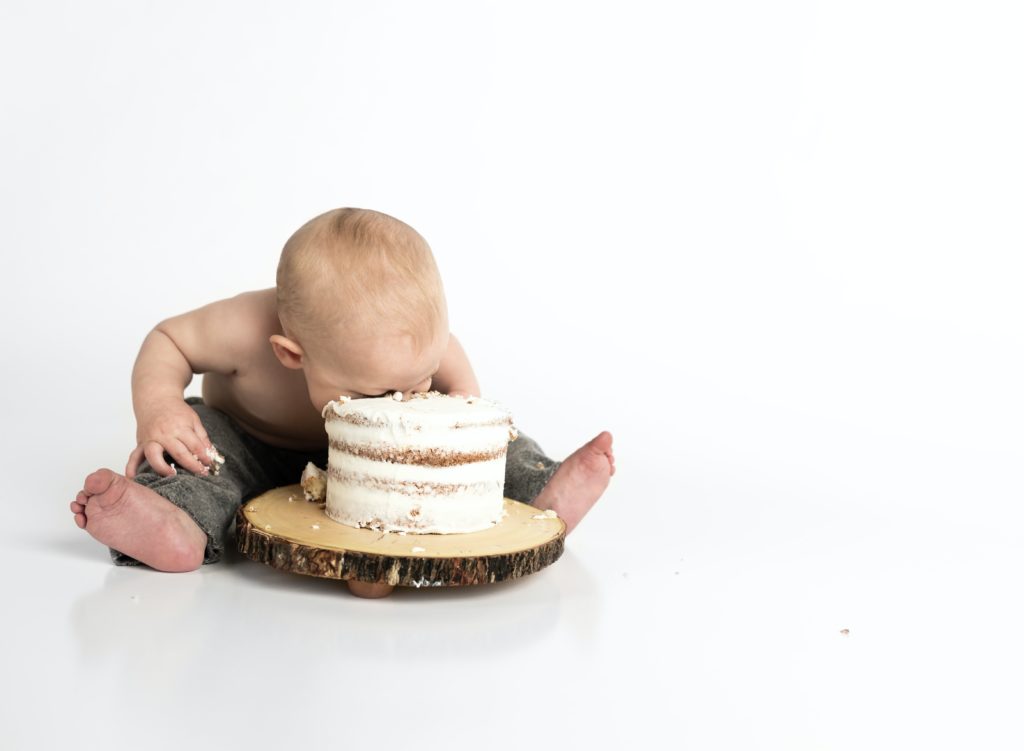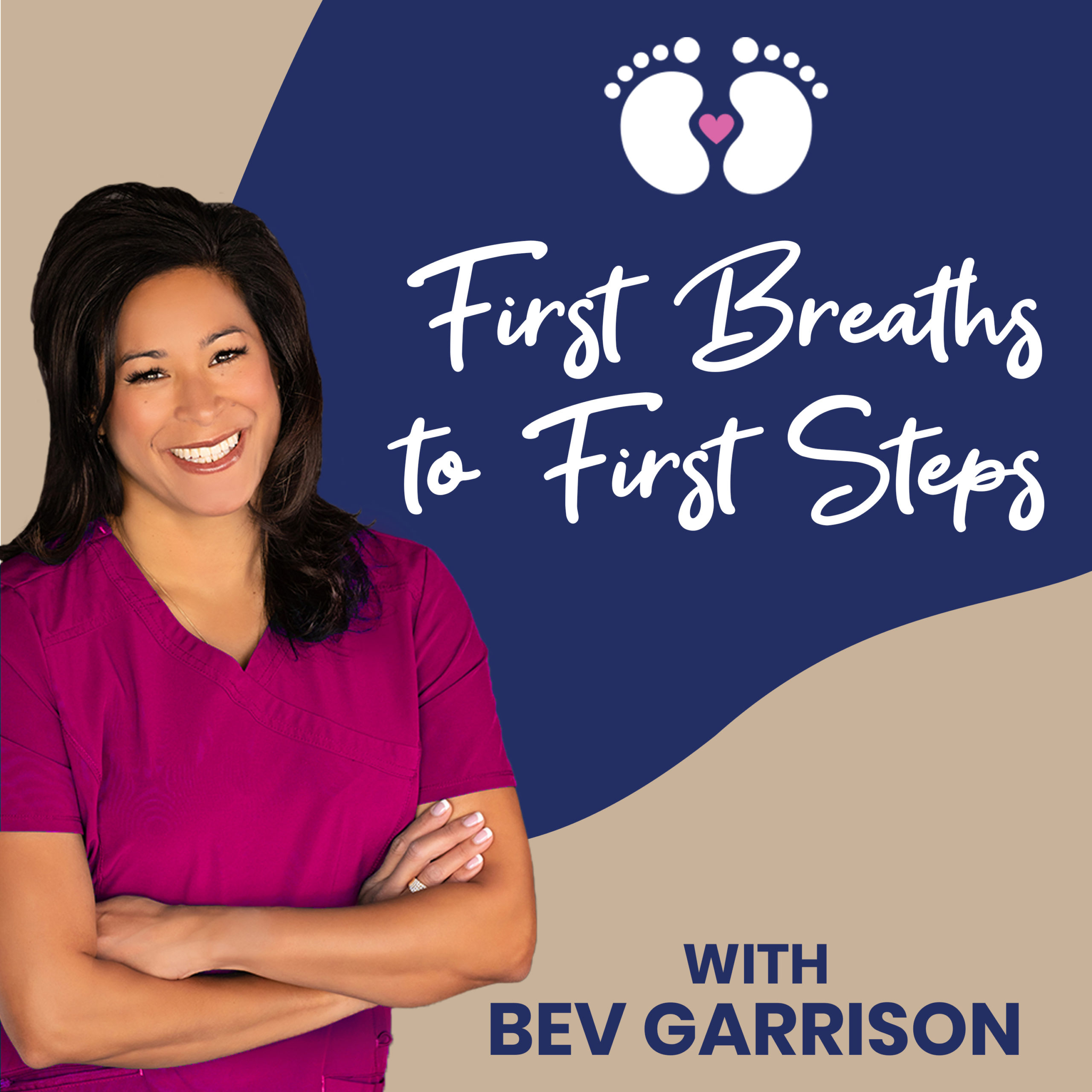How, when and what to offer as first solids in your babies diet.

Episode Transcript
Welcome back today. I thought we talk about first foods. In particular, when to introduce first foods. Common parental concerns and lots of questions that people ask about introducing solids into their newborns diet.
So let’s start out with when to introduce solids. The AAP or American academy of pediatrics in the U S usually recommends around six months. They want us to expose our babies to a wide variety of foods and textures. Introducing any foods before four months of age is. Usually associated with weight gain and fat deposition in infancy and early childhood and leading to obesity. So there’s no benefit to introducing foods any earlier than four months and really the timeframe is focused upon six months. We need to expose. our babies to the same foods multiple times. Usually 10 to 15 times before really having them accept or refuse that food. Babies are more likely to eat foods that they see on their siblings or peers plates as well as their parents plates. And you want to remember to offer the same food single ingredient for three to five days just to be able to check for any possible reactions. Any allergic sort of reactions. To make sure that there isn’t any complication.
So what are some parent concerns? A lot of parents will ask. Do I need to offer food earlier because my baby is fussy. Not at all. All fussiness is not necessarily equal to being hungry. It’s important to be coached on and learn about other soothing strategies for our babies and not use food as that tool to soothe them.
Another common concern that parents have is kind of a confusion on needing to offer the same food multiple times to really have babies acceptthem. Be patient in this situation, it’s not unlikely for babies to somewhat have a refusal sort of response to the first time they are offered something. It may not necessarily be in response to the taste of the food. It might be texture, but it’s super important that you want to continue to offer things over and over. So that babies can get accustomed to it and maybe develop that liking.
Parents also have concerns about wasting food], we sometimes have an issue with overeating. Taking out a serving from a jar. Or whatever container you’re using for food. To offer a single appropriate amount in one feeding. Allows us not to overfeed. Making sure that offering a wide variety as not to encourage picky eaters is also a good thing to remember.
why do you want to wait until six months? I always state that it’s important for your baby to be developmentally ready. So what does that look like? Number one, I would say holding up their head. And being able to sit with limited Assistance. Number two. You will see sometimes in the literature that babies, when they’re two times their birth weight are ready to accept food.
And the third thing is noticing whether or not your baby is intently opening their mouth. Tracking as maybe you’re feeding yourself or another sibling. There are a couple of websites that can be helpful. In information for starting first foods. One of them that I like is dot. or healthychildren.org/growinghealthy. They offer a lot of information that can help you sift through some of your common concerns.
What are common questions that we hear in our feeding community of parents? Probably one of. The most common questions I get asked about is, is it okay to offer cereal in a bottle? I don’t recommend this. I think that there’s a lot of instances where bottles are just not made to have a solid food coming through the nipple hole. Cereal when its attitude formula or breast milk. Makes that liquid thicker. And sometimes can plug up that hole, causing our babies to suck more forcefully. Once they are successful and suck that plug through it can get pulled and drawn down into their lungs. And cause infections. So when offering any type of solid, whether it’s cereal or not, you want to offer that on a spoon
Second common question that I hear a lot from a lot of clients is what his baby led weaning? This is a concept of skipping purees at six months of age and going straight to solids. It was popularized in the United Kingdom by Gil Rapley and Tracy Merkel. It claims to help with texture and hand-eye coordination. It’s recommended to increase textures of purees as well. So I feel like initially offering your puree may help us. As far as accepting and tolerating solid foods, but also decrease that risk of choking foods. You want to avoid raw vegetables that are very firm in this process. Nuts seeds, whole grapes, anything like that? That might be considered choking. Some question. Are babies at that age, six months of age, when this is recommended. Really developmentally ready. I think about is the pincher grasp, where we’re able to pick up small objects instead of grabbing a handful really doesn’t happen until about nine months. So baby led weaning might be a little bit difficult to start as early as six months of age.
Another question is what food do I offer first? I do recommend using a puree, something that’s a little bit softer. To prevent choking. Offering single ingredient solids for three to five days at a time, it seems very boring to you and I, that all your baby has had to eat is for example, sweet potatoes. But it does allow us to identify any allergies or reactions that may occur. There is no evidence of offering babies, safe, soft foods, like egg. Soy fish. And peanut that are considered. Allergenic type foods. Doing that before six months of age would prevent food allergies. However. Peanut testing is recommended for babies with eczema. Egg allergies or a family history of peanut allergies. We definitely recommend talking with your healthcare provider about this topic. So that they can help you work through when is it a good time to offer that? Some providers will recommend down to the age of six months. I think it’s a good thing to keep in mind that it’s probably a day that you want to be home with your child. That you’re not having any other childcare so that you can really be watching for any type of reaction.
. Next question. Is it okay to make your own baby food? Absolutely. I think there’s lots of benefits to this. You can see a savings in money. Ease of offering the same foods that the rest of your family is eating, as well as it’s fairly easy to do, if you have a blender or a food processor, or even just a hand mixer. Best way to approach this is use what you have offer. The colors of the rainbow. I always say the colorful plate. You want to make sure that you’re offering variety? Breast milk and formula still have a majority of the nutrients and calories that babies need, but you also want to start to introduce solids as to get them converting over to a diet that your family is eating. You can freeze these foods that you have made. You want to aim to use them within three months? I usually recommend. Making your puree. Putting them into ice cube trays, and then knowing once you freeze it, one cube is about one serving.
Last thing that I would like to address is arsenic and rice cereal. I have a lot of clients that ask about this. Fortified cereals are a great source of nutrition, but rice tends to be a crop that absorbs a lot of arsenic from groundwater. So when you look at other grains that we offer For babies you may want to look at offering a variety like oat, barley, cous, cous. These grains don’t have as much arsenic. If you feel like you still want to offer rice? Keep in mind that brown rice probably has the highest content of arsenic. With white rice. In the form of basmati rice. Or sushi rice having less arsenic.
So hopefully this information. was helpful during this podcast. Giving you an idea of when to start first foods. Addressing common concerns as well as questions that you hear out there in the community. If you found this information helpful. Click on the link below and you can download for your further review. Also, if you’re interested in working with me, one-on-one to coach you from first breath. Two first steps. You can also click on that link to get ahold of me. Until next time be well


